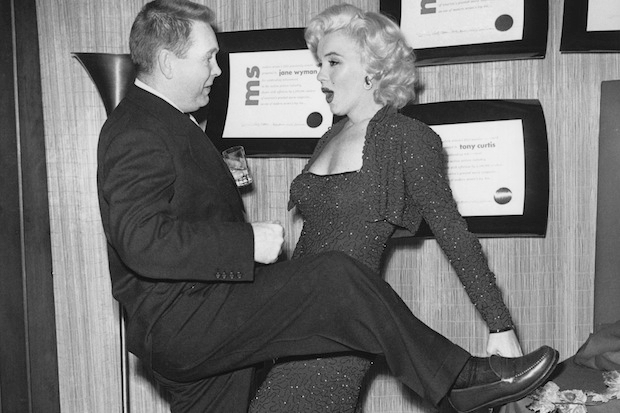Why can’t British men flirt? This was one of my first thoughts when I arrived in England some years ago. I adore flirting. Like so many Italians, I consider flirting a way of life, an added joy to the day, as harmless, normal and pleasurable to a woman as a glass of chilled champagne at an unexpected hour.
When living in Rome, I had become accustomed to that stereotypical Italian man. I’m sure you are all aware of who I am referring to: L’uomo forte. Oh, they are adorable. The subtle glances across a room, the secret smile, that turning of the head and that silent acknowledgement that if only, if only, and then a lingering, regretful pleasure of what might have been. All completely innocent but a continual reminder, an acknowledgement that a woman is a joy to behold.
And then I came to live in London.
It seemed to me at first that there were only two types of English men. One was the eccentric charmer — the Oliver Reed who had to knock back at least two bottles at lunch to gather the confidence for a slurred attempt at seduction. Then there was the bumbling, inarticulate Hugh Grant sort, whose shyness, though endearing, suggested an underlying terror of women.
Foreigners sometimes imagine that the idea of an embarrassed, anxious Englishman is just a joke, but my unfortunate encounters with British men have led me to understand that the stereotype is true. In Italy everything is on the surface; tears, joy and sensuality run unrestrained through the streets of Rome. Passion is considered natural and important. Italian men pride themselves on being passionate, as do French and Spanish men — even Americans have the confidence to express strong emotions. So what is it that makes British men so frightened of feelings?
One of the very few British men who bucks the trend is that straggly-haired Casanova Russell Brand. I recently experienced first-hand the gaze across the room from those penetrating eyes. I merely smiled, of course, but Russell understands the power of a stare, that feeling of being ‘the one’. If anything, even an Italian man would consider Russell slightly de trop. I remain intrigued to learn what happens when Russell takes things to the next level. High-powered flirting indeed.
But Russell is by no means a typical English man. Quite apart from the flirting, he’s openly fond of his mother, who adores him — and here, I think, is the key to the whole phenomenon: it all comes down to the -mothers.
Just as there is the typical Italian man, there is the typical Italian mamma. And an Italian boy will be showered with devotion by his mamma from the day he is born. There is nothing muted about an Italian mother’s love for her son, nothing English and restrained — so no wonder the boy grows up with the absolute conviction of being the answer to every woman’s dreams. From the age of five he’s confident enough to be bold about what he wants; to look a girl in the eye.
The English mother’s feelings run below the surface. The love for her son is polite, rather like your conversation. It lacks the passion and the drama, and so much is assumed rather than displayed. And then you send your boys off to boarding school, sometimes at the age of six! Madonna — no wonder they struggle.
And yet, and yet. There is a subtlety to an English gentleman, a very un-Latin allure, that I am coming to recognise — even appreciate.
I was reminded of this at the Frieze Art Fair when I caught the eye of an older man, an art dealer maybe. Several glasses of champagne and several exhibitions later, there he suddenly was, standing by my side. He too admired Tracey Emin’s work and we began to talk about her. He knew a great deal about art and loved it. This is the way an Englishman flirts, I thought: he doesn’t declare himself directly, he shares his enthusiasm for other things.
And later, once the crowd had begun to disperse, when he invited me for another glass of champagne, how could I possibly have refused? Perhaps I am beginning to understand the charm of an English romance, played out beneath the surface, and of English men. Perhaps they’re not to be underestimated simply because they are not obvious.





Comments